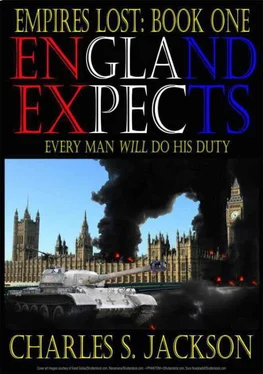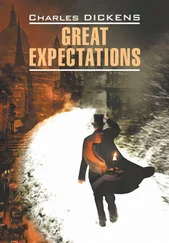As the remaining bombers had taken off in all directions and the Luftwaffe heavy-fighters circled in preparation to picking them off individually, Kohl had been the first to spot the lone Spitfire. It had come in low from the west and at high speed — a much higher speed than the twin-engined Zerstörer was capable of at sea level. Meier instantly threw his aircraft into a power climb at full throttle, relatively secure in the knowledge that while there wasn’t a twin-engined fighter built that could take on a Hurricane or Spitfire one for one and expect a fair fight, the 110 could outclimb any RAF fighter at any altitude.
Ritter, on the other hand, acted purely through instinct. The attacking Spitfire was much closer to his aircraft than Meier’s and held a significant speed advantage. Instead of climbing, he momentarily pulled back on his throttles, lowered partial flaps, and jerked the Zerstörer into an upward, ‘Split-S’ manoeuvre as the Spitfire began to open fire at 200 metres. In the middle of that textbook evasive tactic, Ritter jammed the throttles fully forward once more, retracted his flaps, and nosed the aircraft downward again as the momentarily-baffled and less-experienced RAF pilot hurtled past beneath him, caught completely unawares.
The Spitfire was only in his gunsight for the barest of moments but it was enough. A short burst from his cannon and machine guns raked across the smaller aircraft’s port wing and rear fuselage, severing vital control lines and blasting great chunks out of the upper wing and tail. The Spitfire instantly entered into a wild, terminal spin that only ceased as it slammed into the surface of the Channel a few seconds later. Although Meier subsequently managed to finish off three of the remaining four bombers as they vainly sought the relative safety of the English coast, Ritter knew his XO would be more than a little envious. For a Messerschmitt 110 — or any twin-engined fighter, for that matter — victory over a smaller and far more agile opponent such as a Spitfire spoke either of good luck or better flying…or both .
It took just a few moments for Ritter to taxi his aircraft up to the main hangars and workshops at the far end of the grass strip. Divided equally on either side of the ‘runway’, another seventy-two J-110C waited in silent rows, all sporting similar ‘ink-spot’ green/black-green mottled camouflage patterns over a lighter, blue-grey background. Including the pair of aircraft that had just landed, they comprised the entirety of Zerstörergeschwader 26 ‘ Horst Wessel ’ — the heavy-fighter wing Ritter commanded.
ZG26 was organised in much the same manner as all major Luftwaffe combat units. Staffeln (squadrons) — the smallest official basic unit — were collected into threes to form gruppen (groups). These were further grouped into threes to form larger units — the geschwader or air-wing (often with another two or three aircraft as part of the CO’s staff flight). In this way, standard Luftwaffe designation might denote an aircraft of the Eighth Staffel , Third Gruppe of Ritter’s unit as 8.III/ZG26. Although actual numbers in a squadron varied between combat wings (ranging in most cases from six to twelve), the structure of the system remained basically static across the board. ZG26 at that time carried eight aircraft per squadron, plus a staff flight, thus making for a total of 74 Messerschmitt heavy-fighters.
In the hour or so after landing, Carl Ritter debriefed quickly, ate, showered and changed into a clean, well-pressed uniform. Deciding to take the rest of the afternoon off as there were no pressing matters that required attention, he soon found himself wandering out near one of the manned checkpoints at the far end of the airfield. A rough, unsurfaced road ran along outside the fence and skirted the base on two sides, leading off to the east and the town of St. Omer, just a few kilometres away. Across the other side of the road, the ground dropped away and ran down to an expanse of open fields, farmhouses and such like.
Ritter stopped at the small gate and guard shelter, watching for a moment as a kette — a three-ship formation — of J-110s roared past along the grass strip, lifting slowly into the air and then banking away to the north. The CO smiled, watching one of the passing pilots wave and grin broadly as the aircraft’s wheels left the ground. Ritter waved back then stared on for a few more minutes as the aircraft cruised away at low level, quickly becoming difficult to see against the cloud-spattered blue sky.
Beyond the grass runway, masses of construction workers and equipment battled on in the relative heat as they had every day since the unit had arrived some weeks before. Engineers were slowly but surely installing a second, wider runway of hardened concrete running parallel to the grass one currently in use. The situation was of more than vague interest to Ritter as CO and as a flier generally, and on more than one occasion he’d wondered to himself what kind of aircraft the Oberkommando der Luftwaffe had in mind when it decided it needed to build concrete runways that were all of three kilometres long.
Passing a salute to the guards as they snapped crisply to attention, Ritter sauntered through the gate and crossed the narrow road, walking along the opposite side for a few dozen metres before stepping onto the grassy slope leading down to the fields beyond. The scene before him was of idyllic French countryside that had been fortunate enough to have been spared the ravages of recent battles. Small numbers of dairy cattle grazed here and there, along with a few goats and sheep, and off in the far distance he could see a farmer on horseback working between the rows of his vineyard, although the distance prevented the pilot from working out exactly what was going on.
He sat himself down on the grass near a small clump of low, thorny bushes and watched a pair of children playing some distance away down in the fields. From his raised vantage point he could clearly hear the squeals of delight as a light but constant breeze kept their small, brightly coloured kite aloft, swinging this way and that. The kite soared and dived about as they half ran with it to keep it airborne, towing it along behind them against the direction of the wind.
The children — a boy and a girl of no more than seventeen years combined — lived on the nearest of the small farms thereabouts, their home just a few hundred metres away across the fields. In the weeks since ZG26 had commenced operations at St. Omer, Ritter had become accustomed to spending an hour of two of his free time on that rise by the road, often watching those children — and others — play. The sight of them enjoying the summer sun brought back memories of his own childhood, to him now sometimes seeming to be so long ago.
Memories often filled his mind of times spent running and playing with his father among the fields and woods of their small country estate on the banks of the Rhine. The house was many years gone now and his father, a decorated army officer, had lost his life at Verdun…just one more casualty among so many millions during the Great War. The crippling economic depression of the Twenties and Thirties, exacerbated by the vacillating incompetence of the Weimar Republic, had cost his widowed mother all she had just to keep her and her only son alive following that so-called ‘War To End All Wars’.
Carl Werner Ritter, the only child of Werner and Lili, was born on their estate just north of Koblenz in the Rhine Valley in the first month of 1905. He was a bright, eager child who’d learned quickly and took readily to formal education. Although the outbreak and subsequent four years of the First World War didn’t affect the young Carl directly, the loss of his father had a huge impact.
Читать дальше












